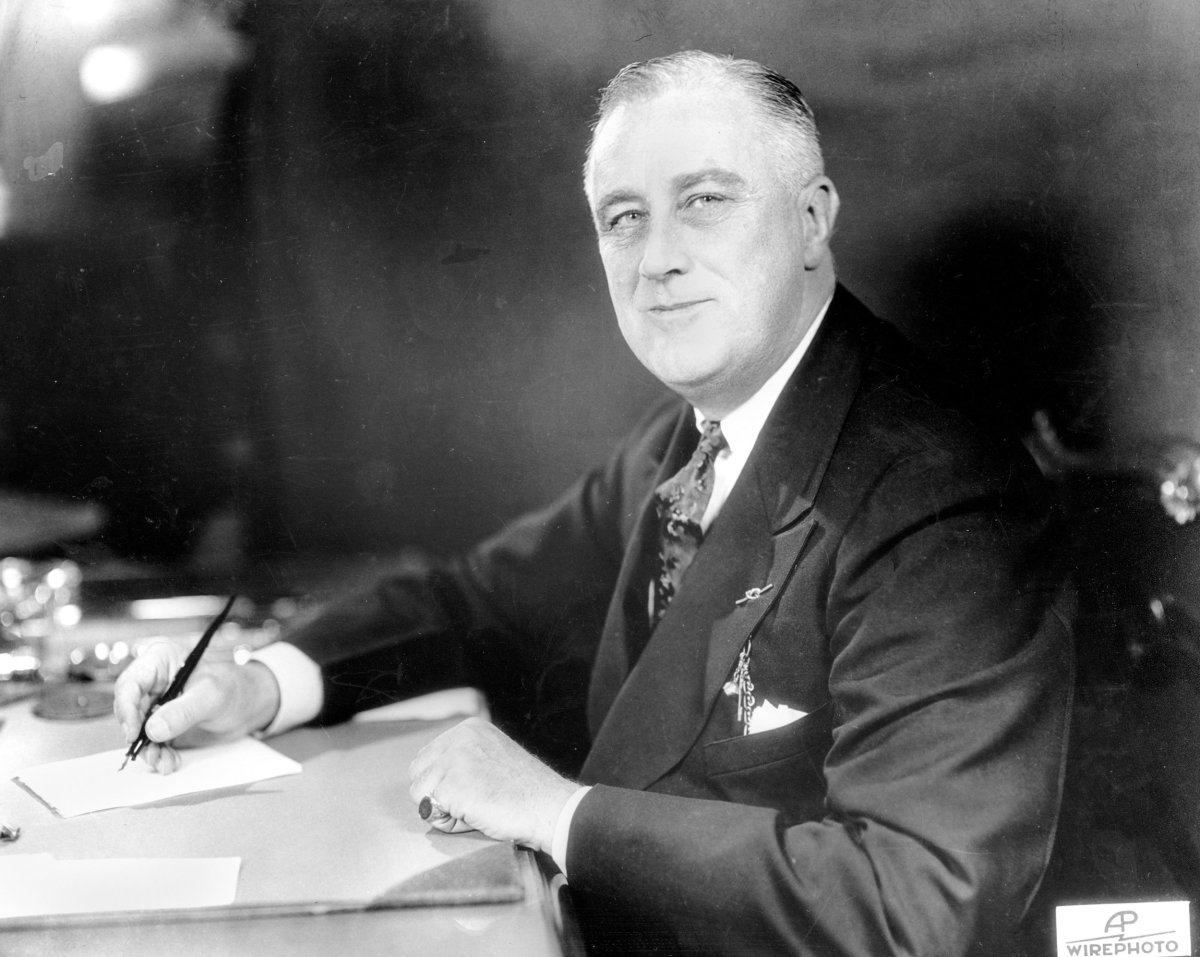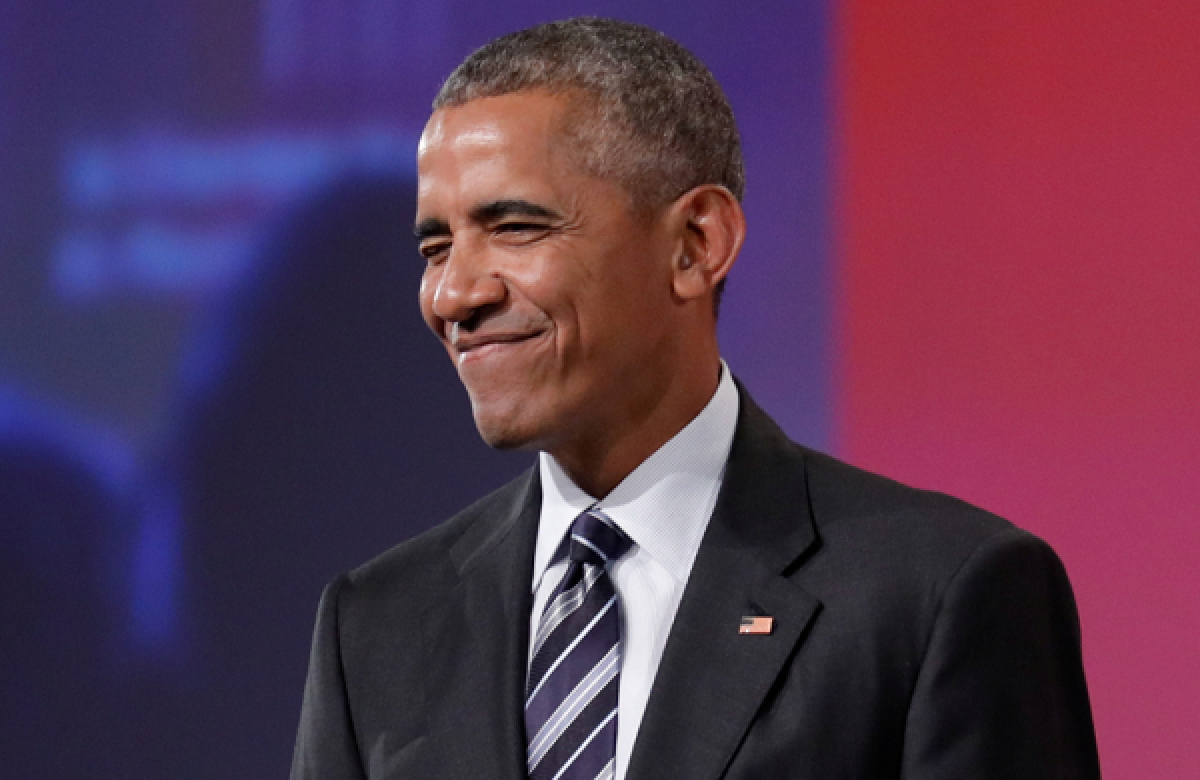
Donald Trump marked the six month point of his turbulent presidency on Thursday. With multiple polls showing him the most unpopular White House incumbent of the modern political era, his presidency is at a highly uncertain pivot point.
Trump has achieved little so far of what he said he would during the campaign and his poll ratings are hovering at or below 40%. Remarkably, he has enjoyed no sustained political success or honeymoon since January, despite the fact that Republicans enjoyed a 'clean sweep' of last November's federal elections securing majorities in Congress too.
While there is still time for Trump to potentially turn around his presidency before next November's mid-term elections, the partisan animosity and wider political challenges now facing him means he is on the back foot. Indeed, a Monmouth University poll released Monday showed that more people want to see Trump impeached today than was the case for then-incumbent Richard Nixon at the start of the Watergate scandal.
While any such impeachment proceedings against Trump are still some significant distance off, much of this talk has been driven by speculation surrounding congressional and FBI investigations into his team's alleged ties with Russia. This potentially brewing scandal, which could yet become a full-blown crisis, has already claimed the scalp of Michael Flynn as national security adviser, and most recently focused on a meeting last year between his son (Donald Trump Jr.) and son-in-law Jared Kushner with a lawyer alleged to have ties to the Russian government.
Should Trump in coming years not be impeached, or resign, whether his tenure in the White House is ultimately judged as a success, or—as seems more likely at this point— a failure will largely swing upon the skill with which he now re-energizes his administration and tries to pursue a successful governing agenda. So far, he has singularly failed here, and the White House suffered another political body blow on Wednesday in the Senate on landmark healthcare legislation designed to replace so-called Obamacare with what Trump believes will be more market-friendly provisions.
In May, House Republicans passed a bill, but the Senate has now twice failed to win sufficient Republican support. On Tuesday, Trump decided—in the face of defeat—to move forward with an alternative plan to repeal Obamacare without a specific alternative at this stage and a vote could come as soon as next week. This high wire strategy, which would see reforms at a later date, may also be destined for failure given that at least three Republicans in the Senate are against it.
This latest debacle highlights that, while Trump has shown himself sometimes to be an effective -- if unorthodox -- campaigner, it is genuinely unclear what governing competence he will demonstrate as the first president since Dwight Eisenhower never before to have held elected office. Despite the billionaire businessman's claims of being a master deal maker, the healthcare saga underlines how different the national political domain can be to that of running a privately-held family conglomerate.

The presidency provides Trump with at least two broad powers: that of setting governing themes; and that of creating interactive coalitions among the public and within Congress in support of the administration's legislative and wider program. Trump's effectiveness in setting governing themes and building coalitions of support,which has been very limited to date, will depend upon his ability to exploit two sources of power: the popular prestige of the presidential office, and his leadership reputation among members of Congress and senior federal bureaucrats.
Strong, effective presidents exploit each source of power interactively—as Franklin Roosevelt and Ronald Reagan respectively did in the 1930s-40s and 1980s by mobilizing public support and also elite traction on capitol hill behind their agendas. This was important, for instance, in Reagan securing his own striking legislative victories around budget and tax policy in his initial period in office.
To make the presidency work most effectively, Trump will now have to show rapidly whether he knows how to do both, defying expectations that are held about him by many voters and political elites. Since he assumed office, the White House has too often appeared riven by incompetence and confusion with for instance its apparently baseless claims of wiretapping on Trump by the previous Obama administration.
Going forward, Trump needs to demonstrate if he is capable of developing a governing agenda which has much more popular support. On the domestic front, it looks likely he will now -- try -- to build this around tax reform and infrastructure spending where there could be easier majorities in Congress to cultivate. Beyond this, Trump also needs to use less polarizing rhetoric, and demonstrate greater reconciliation after the long, bitter election campaign in 2016.

After a period of such rancor, the country may be more divided than in living memory, and he has disputed political legitimacy with many voters who favored Democratic nominee Hillary Clinton or other candidates, especially in the context of the ongoing Russia investigations by Congress and the FBI too.
Moreover, there have been only four previous occasions when a winning presidential candidate lost the popular vote, as Trump did in 2016: in 2000 when George Bush beat Al Gore; in 1888 when Benjamin Harrison bested Grover Cleveland; in 1876 when Rutherford Hayes beat Samuel Tilden; and in 1824 when John Quincy Adams bested Andrew Jackson.
The rarity of these electoral circumstances reinforces the need for Trump to strive for a healing of frayed relations, and establish strong governing themes for his presidency which command popular understanding and support whilst affording him latitude for political development and maneuver. Taken overall, there is still time for Trump to potentially turn his presidency around, despite repeated setbacks.
In suitably skilled hands, the office offers potential for national renewal and unity at troubled times, and this remains true today despite the massive political baggage that he brings.
Andrew Hammond is an Associate at LSE IDEAS at the London School of Economics.
Uncommon Knowledge
Newsweek is committed to challenging conventional wisdom and finding connections in the search for common ground.
Newsweek is committed to challenging conventional wisdom and finding connections in the search for common ground.
About the writer
To read how Newsweek uses AI as a newsroom tool, Click here.








